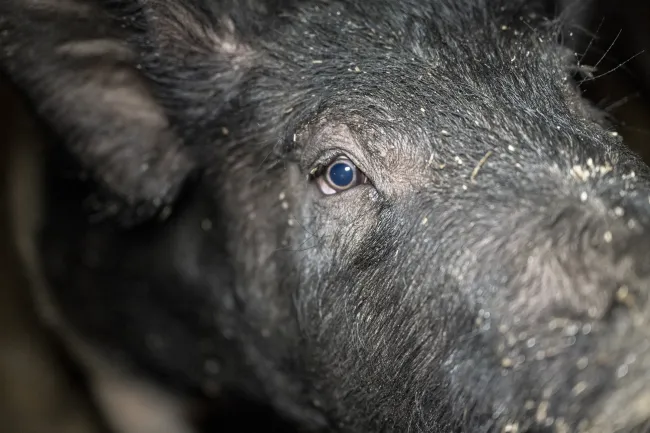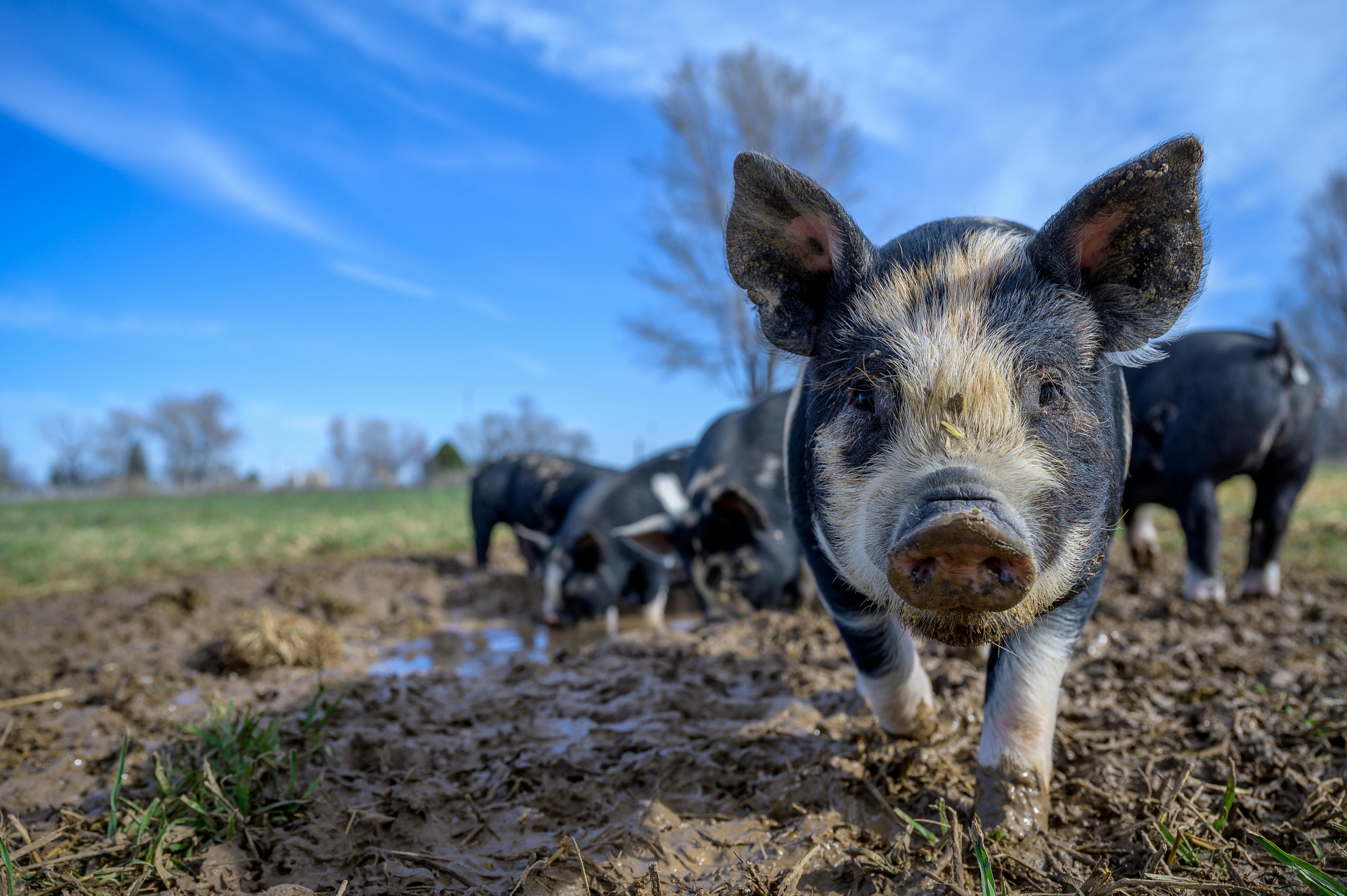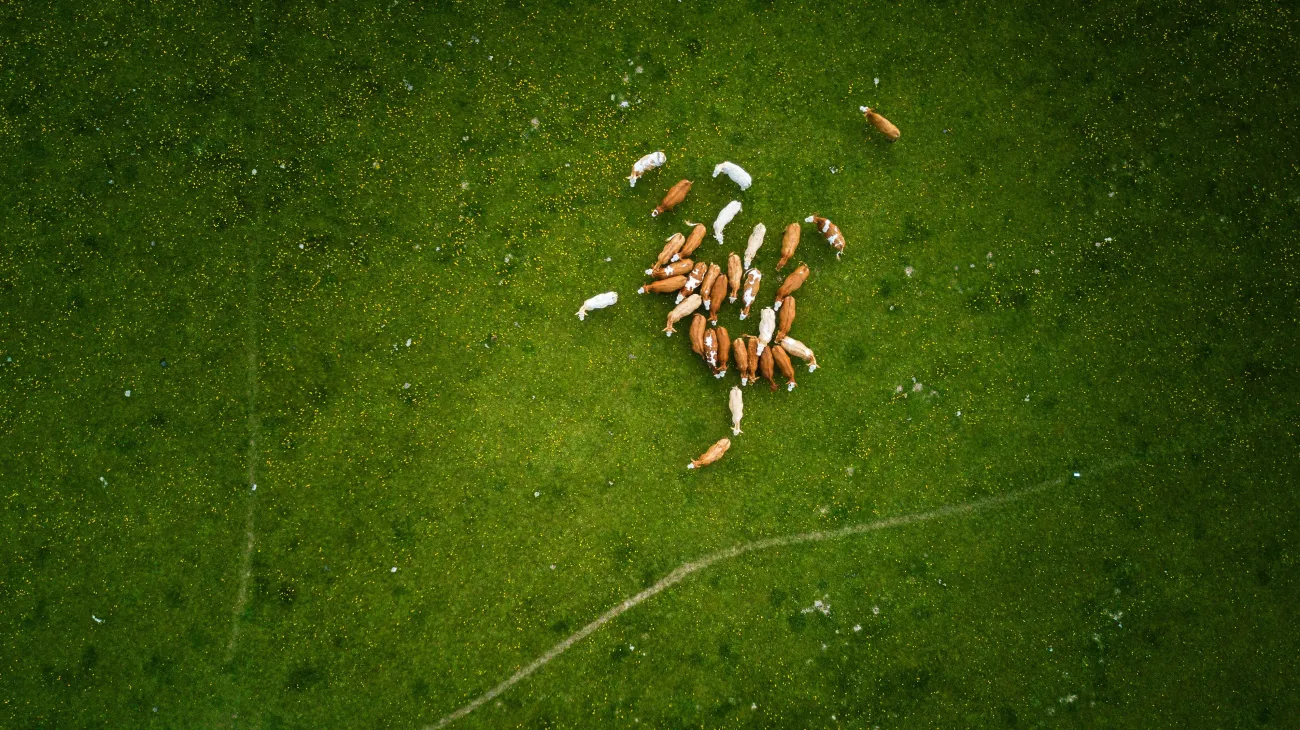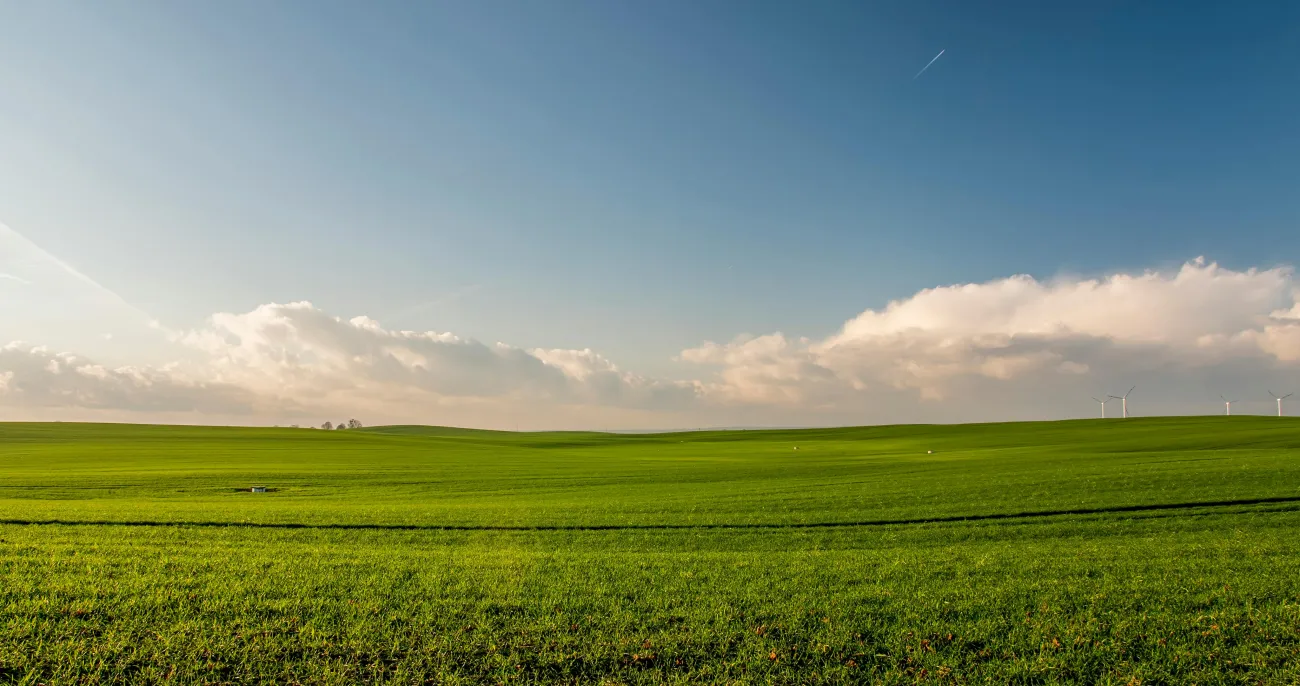We explore an animal rights investigation into a higher welfare labelling scheme developed by the RSPCA, the leading UK charity working to end animal cruelty. Their scheme, RSPCA-Assured, covers enterprises that rear 24 million animals in the UK. We’ve examined the evidence compiled in the 50 page report from activists Animal Rising to explore the accusation it makes that the RSPCA scheme is “covering up cruelty on an industrial scale.” And we dig into it demands to end the labelling scheme.

It will come as no surprise to regular readers of FODDER that the role of animals in a sustainable food future is fiercely contested and polarised. We all come to the debate from different places; via concerns over climate change and biodiversity collapse, or over nutritional health, or about rural poverty and identity. But some of the most strongly held views over farmed animals come down to questions of animal welfare and ethics.
In this edition of FODDER, we explore an animal rights investigation into a higher welfare labelling scheme developed by the RSPCA, the leading UK charity working to end animal cruelty. Their scheme, RSPCA-Assured, covers enterprises that rear 24 million animals in the UK. We’ve examined the evidence compiled in the 50-page report from activists Animal Rising to explore the accusation it makes that the RSPCA scheme is “covering up cruelty on an industrial scale.” And we dig into its demands to end the labelling scheme.
We’ll serve up different visions of ‘higher’ welfare’ and we ask if disputes ultimately come down to different values and belief systems about the role of farmed animals on the land and our plate.
The evidence
In June, Animal Rising published a report with extensive photo and video footage inside pig, chicken and salmon farms collected by activists. It revealed harrowing images of cramped, squalid conditions and decomposing bodies of dead animals. Safe to say, it’s not the image we conjure up when the packaging says ‘higher welfare’.
Vets, professors of animal welfare and legal professionals reviewed the evidence for Animal Rising and found 280 counts of legal breaches. For example, Dr Alice Brough, who reviewed the findings for the 12 pig RSPCA-Assured pig farms, said: "There are multiple [farms] seemingly in breach of UK animal welfare law.”
Even when they are not breaking laws or standards, she said: “We are seeing significant suffering, both physical and mental.”

Photos from the Animal Rising investigation and by no means the most shocking. Credit: Animal Rising
Based on Brough’s experience of making hundreds of visits to RSPCA farms, she says that the investigation’s findings are reflective of the wider assurance scheme – and not the worst she has seen.
Likewise, veterinary professor of animal welfare Andrew Johnson, who reviewed the chicken farms, found evidence of rough handling by workers, poor hygiene, high rates of disease, and a lack of space for them to exhibit natural behaviours such as pecking, foraging, exploring and dust bathing.
“Unfortunately, these conditions are common within the hen industry,” said Johnson.
The RSPCA told TABLE that there is an ongoing internal investigation into the findings but gave no hint as to whether Animal Rising’s evidence constitutes violations of their standards or whether the conditions are reflective of what’s seen to be acceptable within the wider assurance scheme. These findings do raise further questions about how the RSPCA-Assured deals with welfare violations and where the threshold is for acceptable divergence.
However, an RSPCA spokesperson hit back at the investigation, asserting that eight of the farms are not actually members of the RSPCA-Assurance scheme.
They also told us that they would not be stopping the scheme: “As 94% of the UK population choose to eat meat, it’s the right thing to work to improve the lives of animals on farms – without the standards millions of animals would lead worse lives.”
While the shocking images and footage might not represent our idea of ‘higher welfare’, research backs up the RSPCA's claim to be improving the lives of animals, at least as regards the welfare scoring system and its four pillars of good health, good feeding, good housing and appropriate behaviour. A 2023 study into pig welfare on farms found that RSPCA-Assured schemes had consistently higher welfare than the more widespread but less strict certification, Red Tractor.
Instead, should we switch to a different standard such as organic or woodland farming that might better match our image of ‘good’ animal welfare? The answer may bring with it difficult environmental trade-offs as the easiest ways to design farming systems with low land and greenhouse gas footprints tend to be very bad for animal welfare. But these issues are by no means straightforward. But these issues are by no means straightforward. Our explainer meat, metrics and mindsets digs into these further.
But new research suggests that we haven’t invented the ‘optimal’ production system, one that scores highly across a range of environmental and welfare metrics. A study by Bartlett and colleagues comparing 91 pig farms found that no one type of production system (organic, RSPCA, woodland) in pig farming consistently performed well across land use, animal welfare, greenhouse gas emissions and antibiotic use. Instead, the individual farms that performed best across all four metrics were found in all types of production systems, including RSPCA farms. It shows that you can have good welfare within more intensive farming, with low greenhouse gases and land use and conversely you can have relatively low environmental impacts in high welfare extensive farming.

It's possible to have low environmental impacts in high welfare extensive farming. Credit: Brett Sayles via Pexels.
Incremental change vs radical change
But fundamentally for Animal Rising, this idea of better welfare is morally flawed. Director of Animal Rising, Rose Patterson argues that RSPCA-Assured is fundamentally misleading consumers about better welfare with their “fairytale farming” marketing, which depicts, among other things, turkeys in a woodland lit up with fairy lights and chickens eating corn on the cob.
Even if the RSPCA scheme does raise standards in animal welfare, Patterson says this welfarist approach prevents more structural change by providing consumers with false reassurance about their purchases when, if they knew the reality, consumers would be more likely to give up meat completely.
“We need to think about the bigger picture and end all animal farming,” says Patterson
The conflict between Animal Rising and RSPCA crystallises a heated debate and highlights a philosophical and moral divide, says Tamsin Blaxter, a researcher at TABLE and co-author of our recently published explainer on animal welfare and ethics.
Abolitionists versus welfarist
The RSPCA-Assured is an example of welfarist ethics, says Blaxter. The "welfarist" position works with law, regulation and industry, and pursues whatever marginal or incremental improvements in animal welfare are possible in these systems, under the assumption that demand for meat is a fact of life and that we therefore need to accept and work within this reality.
Animal Rising, on the other hand, is an abolitionist movement working to end animal farming.
Although both claim to care about animals, they speak completely different languages, says Blaxter.
She explains that even the term 'welfare' may mean different things to different people. The strict standards of evidence used in animal welfare science lead to a narrower definition of what is good for animals than the more intuitive approach of activists and philosophers.
Some in the abolition space might acknowledge that people in the welfarist movement are trying to make the lives of animals better – but many, like Patterson from Animal Rising, would argue welfarist approaches like labelling schemes are counterproductive.
This is the deepest chasm in the debate, says Blaxter.
“[Welfarists] think their tactics are making things incrementally better but [abolitionists] think they’re making things worse by hindering opportunities for greater change,” she observes.
George Monbiot is a famous example of an abolitionist and he recently decried the RSPCA-Assured scheme in his Guardian column, comparing the meat recipes on the RSPCA website to a “children’s welfare charity publishing a directory on where you can hire child labour.”
He suggested that the charity should focus on promoting alternative proteins and plant-based diets instead.
At the crux of the debate is what a better relationship with animals looks like. Do you, like Animal Rising, envision a meat-free world, where humans unite in their fight against captivity and killing? Or do you see a world guided by the welfare scientists, whose science-informed understanding has allowed us to reduce animal suffering, but where we nevertheless continue to eat meat at our current rate? Or maybe you see a world where regenerative farming allows animals to live natural lives, which in some ways are more akin to how they might have lived in the wild?
If you’d like to explore these questions in more depth, then do join TABLE for a webinar we’re holding on the 10th of September. We and our guests, drawn from animal welfare science, animal ethics and moral philosophy will be discussing different approaches to our relationships with the animals we eat.




Comments (0)